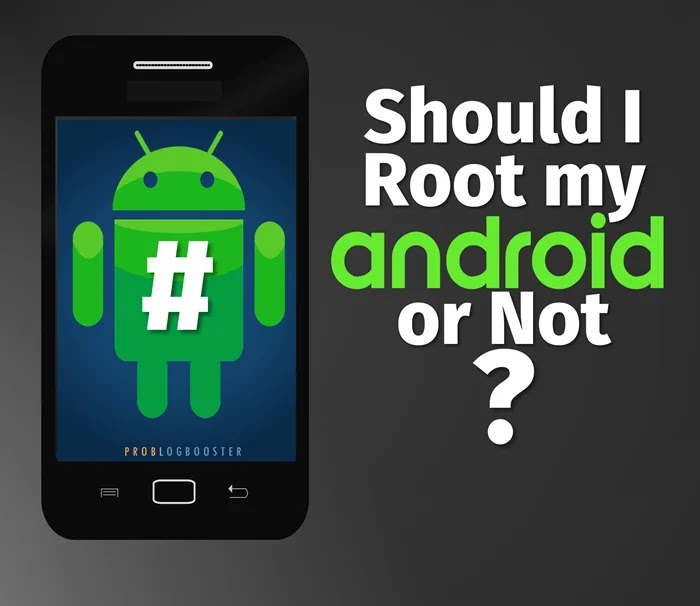Rooting or not rooting? —
Most asked questions are, is it advisable to root your mobile? Why root Android mobiles? The pros and cons? To root or not to root, that is the question many Android users used to talk. Here I am going to discuss about rooting and not rooting your phones.
In case of computers, there are two types of users. One is standard and another is a superuser, who has the administrative power to do more with the operating system.
In Android, the same thing happens, if your Android is rooted, then you can do more with your device. But if you have more privilege & freedom, then the risks are also more for you. Rooting is not actually harmful to your mobile. But it is recommended only for superusers/developers to root.
After root, you will have complete control over the system, but there are risks to rooting. Here today, I am going to discuss, the advantages and the risks of rooting your Android phone.
Let’s know why should anyone root their Android and why not.

{tocify} $title={Table of Contents}
Why should I root?
1. Increase speed and battery life:
Clocking the device means increasing the CPU speed. By root, you can speed up Android CPU performance.
With your rooted device, you can overclock your device to boost Android performance and can underclock to increase the battery life.
2. Install incompatible apps:
By default, many apps won’t work with your android specially downloaded from the Play Store. A rooted device can be able to install and run all incompatible apps. It may show some bug but surely run on your device.
3. Ad blocking:
Almost all free apps have ads. Ads slow down the device performance and eat mobile data. By using an ad-blocking you can stop showing ads on applications. And so saves your mobile data.
4. Gain write access to sd card on KitKat:
On KitKat, a user can’t install an application to an external SD card. There is a restriction on Kitkat as a user won’t be able to write on SD cards without rooting. So with root, you will be able to unlock the SD card and read/write easily.
5. Uninstall anything:
When you buy a new smartphone, there are many unwanted pre-installed applications [bloatware apps] that are usually unable to remove and are also of no use to us. After rooting you can easily remove anything from your device. And get more storage space.
6. Custom ROM:
Default operating system has no more customization facility and after using same for years, it makes us bored to use. By flashing a custom ROM, you’ll get a beautiful OS with many customizations and better performance.
Including all the above, there are also many advantages of rooting, like app freezing, full device backup, free internal memory, etc.
You may also like to know; 12 Best Ways To Speedup Rooted Android Phone
Why shouldn’t I root?
Every work has two sides; merits and demerits. There are also some demerits of rooting your device.
1. Your phone might get bricked:
My first rooting was a success, but when I root after updating my tablet to Kitkat, it was damaged and unable to turn on. There is a high chance of your phone is getting bricked means damaged. So, before rooting your device, try to Google the right procedure for a successful root.
2. Update issue:
On my rooted tablet, when I tried to install an Android update it show that unable to install the update. After un-rooting, I was successfully able to install the update. Some devices and rooted OS are not allowed to update, but this problem does not happen with all devices.
3. Say good-bye to the warranty:
Rooting is a legal process, but many phone manufacturers do NOT allow this process. It just voids your warranty. If your device is damaged after rooting, then the manufacturer won’t cover the damage under warranty periods.
You may also like to know; 15 Best Ways, Speed Up Your Android WITHOUT ROOT
After rooting, the security restrictions are also weak. This may infect your device with various viruses. In my opinion, if you REALLY want to do more with Android, then you can try to root your device. Many superusers rooted their devices and enjoying the beauty of android.
Note:
I am not promoting ROOTING devices, but you must be sure about risk, your skills, and the knowledge you got before rooting your devices.
https://www.cupbord.com/should-i-root-my-android-or-not/










Leave a Reply